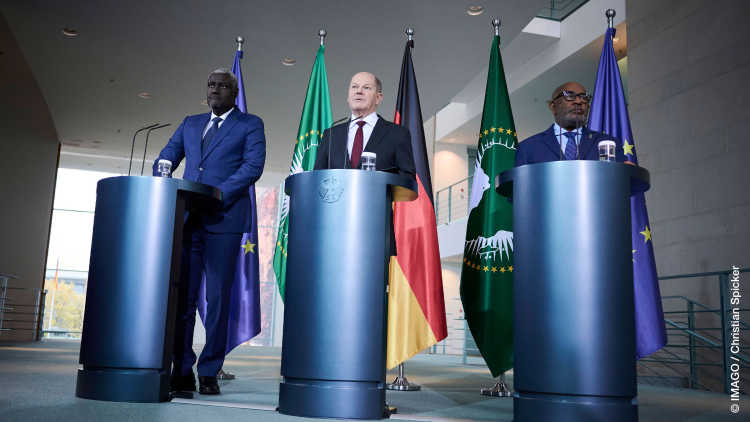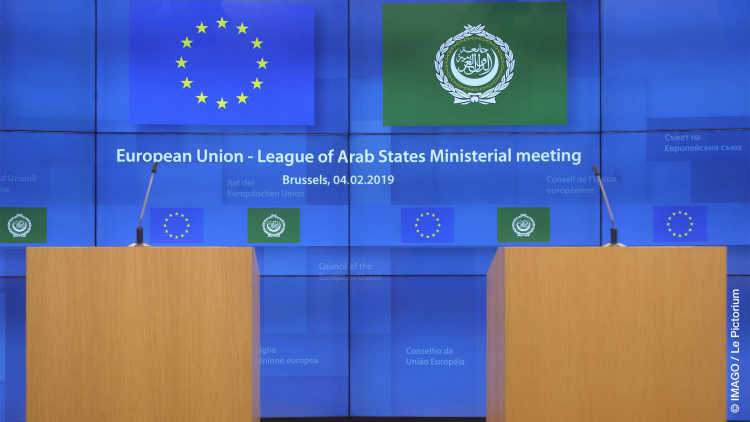- Home
- Publications
- GIGA Focus
- Potenziale der Wissenschafts- und Technologiekooperation im Asien-Pazifik-Raum
GIGA Focus Asia
Asia Pacific’s Science and Technology Cooperation Potentials
Number 6 | 2024 | ISSN: 1862-359X

The diversification of partner countries for science and technology cooperation constitutes an important pillar of Germany’s new “China Strategy.” Within the Asian Pacific region, numerous countries have made significant progress in S&T development. Our performance monitoring of this region shows how attractive some of these countries have become as cooperation partners for Germany, China aside.
In addition to the European Research Era (ERA), the Asia Pacific Research Area (APRA) has developed very dynamically over the last 15 years, making the region increasingly attractive for German S&T cooperation.
The APRA monitoring team designed its own cohesion index that demonstrates the growing intensity of scientific cooperation among the countries of the APRA region.
China has overtaken Japan as the driver of science and innovation development in the APRA region, becoming the major cooperation partner for most of its neighbouring countries. In tandem, South Korea and India have become important catch-up states in S&T.
The successful rise of APRA countries (especially China, Japan, South Korea, and India) not only relates to traditional fields and technologies but also to key and future technologies, too.
Germany cooperates primarily with those APRA countries that are comparable and complementary partners. Due to geopolitical conflicts and shifting security interests, Germany’s cooperation with China has become more difficult.
Policy Implications
China aside, numerous other countries in the APRA region have the potential to become S&T cooperation partners for Germany. To increase its visibility in the region, the intensification of S&T engagement with catch-up states would be in Germany’s own interest. Nevertheless, as one of the most important science powers, working with China will remain indispensable for coping with global challenges.
Footnotes
Editor GIGA Focus Asia
Editorial Department GIGA Focus Asia
Regional Institutes
Research Programmes
How to cite this article
Schüller, Margot, Henning Kroll, and Christian Schäfer (2024), Asia Pacific’s Science and Technology Cooperation Potentials, GIGA Focus Asia, 6, Hamburg: German Institute for Global and Area Studies (GIGA), https://doi.org/10.57671/gfas-24061
Imprint
The GIGA Focus is an Open Access publication and can be read on the Internet and downloaded free of charge at www.giga-hamburg.de/en/publications/giga-focus. According to the conditions of the Creative-Commons license Attribution-No Derivative Works 3.0, this publication may be freely duplicated, circulated, and made accessible to the public. The particular conditions include the correct indication of the initial publication as GIGA Focus and no changes in or abbreviation of texts.
The German Institute for Global and Area Studies (GIGA) – Leibniz-Institut für Globale und Regionale Studien in Hamburg publishes the Focus series on Africa, Asia, Latin America, the Middle East and global issues. The GIGA Focus is edited and published by the GIGA. The views and opinions expressed are solely those of the authors and do not necessarily reflect those of the institute. Authors alone are responsible for the content of their articles. GIGA and the authors cannot be held liable for any errors and omissions, or for any consequences arising from the use of the information provided.
























